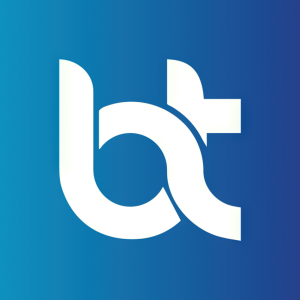BioXcel Therapeutics Advances Pivotal Phase 3 Trials of BXCL501 for Acute Treatment of Agitation Associated with Bipolar Disorders, Schizophrenia, and Alzheimer’s Dementia
Rhea-AI Summary
BioXcel Therapeutics (BTAI) announced progress in two pivotal Phase 3 trials for BXCL501. The first patient has been randomized in the SERENITY At-Home trial, evaluating a 120 mcg dose for at-home treatment of agitation in bipolar disorders or schizophrenia. The company also received FDA feedback on the TRANQUILITY In-Care trial protocol, testing a 60 mcg dose for Alzheimer's-related agitation. The SERENITY trial aims to enroll 200 patients over 9-12 months, while TRANQUILITY targets 150 patients aged 55+ across various dementia severity levels. Both conditions currently lack FDA-approved acute therapies, with an estimated 140 million annual acute agitation episodes.
Positive
- First patient enrolled in Phase 3 SERENITY At-Home trial
- Received FDA feedback on TRANQUILITY In-Care trial protocol
- Large market opportunity with 140 million annual acute agitation episodes
- Potential label expansion for at-home use of already approved IGALMI
Negative
- Extended trial duration of 9-12 months for SERENITY study
- No current FDA approval precedent for episodic AAD treatment
News Market Reaction
On the day this news was published, BTAI declined 7.61%, reflecting a notable negative market reaction.
Data tracked by StockTitan Argus on the day of publication.
First patient randomized in SERENITY At-Home trial of BXCL501 for acute treatment of agitation associated with bipolar disorders or schizophrenia
Received FDA feedback on protocol for TRANQUILITY In-Care trial of BXCL501 for agitation associated with Alzheimer’s dementia (AAD)
Estimated 140 million annual acute agitation episodes associated with these conditions 1-3
NEW HAVEN, Conn., Nov. 12, 2024 (GLOBE NEWSWIRE) -- BioXcel Therapeutics, Inc. (Nasdaq: BTAI), a biopharmaceutical company utilizing artificial intelligence to develop transformative medicines in neuroscience, today announced the achievement of clinical and regulatory progress for its pivotal Phase 3 clinical trials of BXCL501 for the acute treatment of agitation associated with bipolar disorders or schizophrenia (SERENITY At-Home) and agitation associated with Alzheimer’s dementia (TRANQUILITY In-Care). There are no FDA-approved acute therapies for these conditions.
“We are pleased with the progress on our late-stage trials, which leverage our extensive clinical development experience,” said Vincent O’Neill, M.D., Chief of Product Development and Medical Officer of BioXcel Therapeutics. “With SERENITY At-Home, we are seeking to make BXCL501, which is currently approved under healthcare provider supervision as IGALMI™, available to millions of additional patients by potentially expanding its label for treating bipolar or schizophrenia-related agitation in the home. With TRANQUILITY In-Care, we have a unique opportunity in AAD, for which there is no U.S. regulatory precedent for episodic treatment. We look forward to continuing our development of BXCL501 for these critical unmet medical needs.”
SERENITY At-Home Pivotal Phase 3 trial
- Designed to evaluate the safety of a 120 mcg dose of BXCL501 in the at-home setting for agitation associated with bipolar disorders or schizophrenia
- The first patient has been randomized.
- The Company announced trial initiation on September 5, 2024, with an expected trial duration of 9 to 12 months.
- The double-blind, placebo-controlled, 12-week outpatient trial is expected to enroll approximately 200 patients residing at home.
TRANQUILITY In-Care Pivotal Phase 3 trial
- Designed to evaluate the efficacy and safety of a 60 mcg dose of BXCL501 for AAD over a 12-week period
- Received feedback from the U.S. Food and Drug Administration on proposed protocol
- The double-blind, placebo-controlled study trial is expected to enroll a total of approximately 150 patients aged 55 years and older across the spectrum of Alzheimer’s disease severity with mild, moderate, and severe dementia with mini-mental state examination (MMSE) scores of 0 to 25 who reside in skilled nursing facilities, memory care units, or assisted living facilities.
- The trial is expected to enroll patients with episodic agitation, with patients self-administering 60 mcg of BXCL501 or placebo when agitation episodes occur over the trial period.
- The planned primary endpoint is a change from baseline in the Positive and Negative Syndrome Scale-Excitatory Component (PEC) total score at two hours post-first dose. This is the same endpoint used in previous TRANQUILITY trials and in studies that supported the FDA approval of IGALMI™ (dexmedetomidine) sublingual film.
- Continued efficacy evaluations are expected to be conducted through performing additional PEC and complementary efficacy measures, including the global impression of change in agitation.
A corporate presentation, including information on the SERENITY and TRANQUILITY trials, is available under “News/Events” on the Investors section of the Company’s website: bioxceltherapeutics.com.
About IGALMI™ (dexmedetomidine) sublingual film
INDICATION
IGALMI™ (dexmedetomidine) sublingual film is a prescription medicine, administered under the supervision of a health care provider, that is placed under the tongue or behind the lower lip and is used for the acute treatment of agitation associated with schizophrenia and bipolar disorder I or II in adults. The safety and effectiveness of IGALMI has not been studied beyond 24 hours from the first dose. It is not known if IGALMI is safe and effective in children.
IMPORTANT SAFETY INFORMATION
IGALMI can cause serious side effects, including:
- Decreased blood pressure, low blood pressure upon standing, and slower than normal heart rate, which may be more likely in patients with low blood volume, diabetes, chronic high blood pressure, and older patients. IGALMI is taken under the supervision of a healthcare provider who will monitor vital signs (like blood pressure and heart rate) and alertness after IGALMI is administered to help prevent falling or fainting. Patients should be adequately hydrated and sit or lie down after taking IGALMI and instructed to tell their healthcare provider if they feel dizzy, lightheaded, or faint.
- Heart rhythm changes (QT interval prolongation). IGALMI should not be given to patients with an abnormal heart rhythm, a history of an irregular heartbeat, slow heart rate, low potassium, low magnesium, or taking other drugs that could affect heart rhythm. Taking IGALMI with a history of abnormal heart rhythm can increase the risk of torsades de pointes and sudden death. Patients should be instructed to tell their healthcare provider immediately if they feel faint or have heart palpitations.
- Sleepiness/drowsiness. Patients should not perform activities requiring mental alertness, such as driving or operating hazardous machinery, for at least 8 hours after taking IGALMI.
- Withdrawal reactions, tolerance, and decreased response/efficacy. IGALMI was not studied for longer than 24 hours after the first dose. Physical dependence, withdrawal symptoms (e.g., nausea, vomiting, agitation), and decreased response to IGALMI may occur if IGALMI is used longer than 24 hours.
The most common side effects of IGALMI in clinical studies were sleepiness or drowsiness, a prickling or tingling sensation or numbness of the mouth, dizziness, dry mouth, low blood pressure, and low blood pressure upon standing.
These are not all the possible side effects of IGALMI. Patients should speak with their healthcare provider for medical advice about side effects.
Patients should tell their healthcare provider about their medical history, including if they suffer from any known heart problems, low potassium, low magnesium, low blood pressure, low heart rate, diabetes, high blood pressure, history of fainting, or liver impairment. They should also tell their healthcare provider if they are pregnant or breastfeeding or take any medicines, including prescription and over-the-counter medicines, vitamins, and herbal supplements. Patients should especially tell their healthcare provider if they take any drugs that lower blood pressure, change heart rate, or take anesthetics, sedatives, hypnotics, and opioids.
Everyone is encouraged to report negative side effects of prescription drugs to the FDA. Visit www.fda.gov/medwatch or call 1-800-FDA-1088. You can also contact BioXcel Therapeutics, Inc. at 1-833-201- 1088 or medinfo@bioxceltherapeutics.com.
Please see full Prescribing Information.
About BXCL501
Outside of its approved indication by the U.S. Food and Drug Administration as IGALMI™ (dexmedetomidine) sublingual film, BXCL501 is an investigational proprietary, orally dissolving film formulation of dexmedetomidine, a selective alpha-2 adrenergic receptor agonist. BXCL501 is under investigation by BioXcel Therapeutics for the acute treatment of agitation associated with Alzheimer’s dementia and for the acute treatment of agitation associated with bipolar I or II disorder or schizophrenia in the at-home setting. The safety and efficacy of BXCL501 for these investigational uses have not been established. BXCL501 has been granted Breakthrough Therapy designation by the FDA for the acute treatment of agitation associated with dementia and Fast Track designation for the acute treatment of agitation associated with schizophrenia, bipolar disorders, and dementia.
About BioXcel Therapeutics, Inc.
BioXcel Therapeutics, Inc. (Nasdaq: BTAI) is a biopharmaceutical company utilizing artificial intelligence to develop transformative medicines in neuroscience. Its wholly owned subsidiary, OnkosXcel Therapeutics, is focused on the development of medicines in immuno-oncology. The Company’s drug re-innovation approach leverages existing approved drugs and/or clinically validated product candidates together with big data and proprietary machine learning algorithms to identify new therapeutic indications. For more information, please visit bioxceltherapeutics.com.
Forward-Looking Statements
This press release includes “forward-looking statements” within the meaning of the Private Securities Litigation Reform Act of 1995. We intend such forward-looking statements to be covered by the safe harbor provisions for forward-looking statements contained in Section 27A of the Securities Act of 1933, as amended and Section 21E of the Securities Exchange Act of 1934, as amended. All statements contained in this press release other than statements of historical fact should be considered forward-looking statements, including, without limitation, statements related to: the planned advancement of the Company’s TRANQUILITY and SERENITY trials and the trial designs thereof; potential market opportunity for BXCL501; the potential for the results from the Company’s completed, ongoing and proposed clinical trials to support regulatory approvals for its product candidates; its ongoing commercial strategy for IGALMI; the Company’s current patent applications and potential Orange Book submissions. When used herein, words including “anticipate,” “believe,” “can,” “continue,” “could,” “designed,” “estimate,” “expect,” “forecast,” “goal,” “intend,” “may,” “might,” “plan,” “possible,” “potential,” “predict,” “project,” “should,” “target,” “will,” “would” and similar expressions are intended to identify forward-looking statements, though not all forward-looking statements use these words or expressions. In addition, any statements or information that refer to expectations, beliefs, plans, projections, objectives, performance or other characterizations of future events or circumstances, including any underlying assumptions, are forward-looking. All forward-looking statements are based upon the Company’s current expectations and various assumptions. The Company believes there is a reasonable basis for its expectations and beliefs, but they are inherently uncertain. The Company may not realize its expectations, and its beliefs may not prove correct. Actual results could differ materially from those described or implied by such forward-looking statements as a result of various important factors, including, without limitation: its limited operating history; its incurrence of significant losses; its need for substantial additional funding and ability to raise capital when needed; the impact of the reprioritization; its significant indebtedness, ability to comply with covenant obligations and potential payment obligations related to such indebtedness and other contractual obligations; the Company has identified conditions and events that raise substantial doubt about its ability to continue as a going concern; its limited experience in drug discovery and drug development; risks related to the TRANQUILITY program; its dependence on the success and commercialization of IGALMI™, BXCL501, BXCL502, BXCL701 and BXCL702 and other product candidates; the number of episodes of agitation and the size of the Company’s total addressable market may be overestimated, and approval that the Company may obtain may be based on a narrower definition of the patient population; its lack of experience in marketing and selling drug products; the risk that IGALMI or the Company’s product candidates may not be accepted by physicians or the medical community in general; the Company still faces extensive and ongoing regulatory requirements and obligations for IGALMI; the failure of preliminary data from its clinical studies to predict final study results; failure of its early clinical studies or preclinical studies to predict future clinical studies; its ability to receive regulatory approval for its product candidates; its ability to enroll patients in its clinical trials; undesirable side effects caused by the Company’s product candidates; its novel approach to the discovery and development of product candidates based on EvolverAI; the significant influence of and dependence on BioXcel LLC; its exposure to patent infringement lawsuits; its reliance on third parties; its ability to comply with the extensive regulations applicable to it; impacts from data breaches or cyber-attacks, if any; risks associated with the increased scrutiny relating to environmental, social and governance (ESG) matters; risks associated with federal, state or foreign health care “fraud and abuse” laws; and its ability to commercialize its product candidates, as well as the important factors discussed under the caption “Risk Factors” in its Quarterly Report on Form 10-Q for the quarterly period ended June 30, 2024, as such factors may be updated from time to time in its other filings with the SEC, which are accessible on the SEC’s website at www.sec.gov and the Investors section of the Company’s website at www.bioxceltherapeutics.com. These and other important factors could cause actual results to differ materially from those indicated by the forward-looking statements made in this press release. Any such forward-looking statements represent management’s estimates as of the date of this press release. While the Company may elect to update such forward-looking statements at some point in the future, except as required by law, it disclaims any obligation to do so, even if subsequent events cause our views to change. These forward-looking statements should not be relied upon as representing the Company’s views as of any date subsequent to the date of this press release.
Contact Information
Corporate/Investors
BioXcel Therapeutics
Erik Kopp
1.203.494.7062
Media
Russo Partners
David Schull
1.858.717.2310
Source: BioXcel Therapeutics, Inc.
IGALMI™ is a trademark of BioXcel Therapeutics, Inc.
References
1. Data on file relating to agitation episodes associated with schizophrenia or bipolar I or II disorder. BioXcel Therapeutics, Inc. New Haven, CT December 2020. Episode estimations may not reflect potential treatable episodes, and actual addressable market may be smaller.
2. Data from Wu EQ, Shi L, Birnbaum H, et al. Annual prevalence of diagnosed schizophrenia in the USA: a claims data analysis approach. Psychol Med. 2006;36(11):1535-1540. Estimates based on whether indications are approved for at-home use for the intended patient population and such patients are treatable. Episode estimations may not reflect potential treatable episodes, and actual addressable market may be smaller.
3. National Institute of Mental Health. Prevalence of bipolar disorder in adults. November 2017. Accessed December 16, 2022. https://www.nimh.nih.gov/health/statistics/bipolar-disorder. Episode estimations may not reflect potential treatable episodes, and actual addressable market may be smaller.








